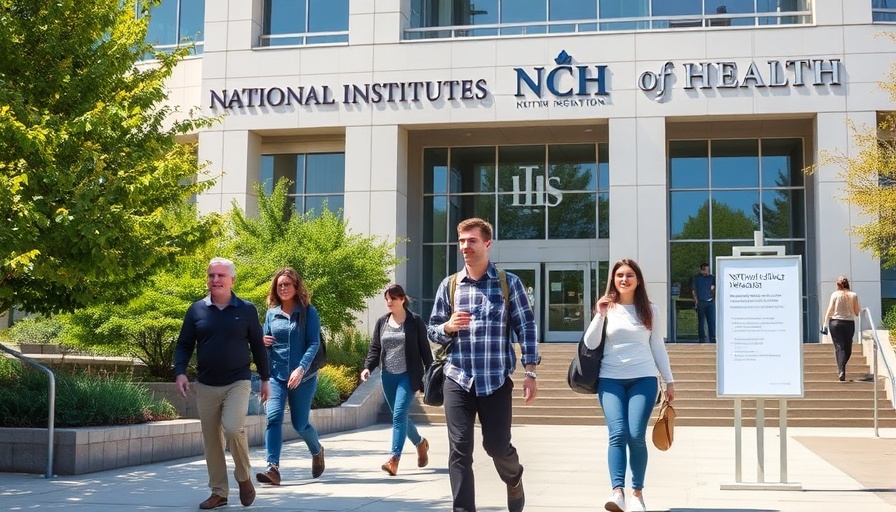
NIH Workers Unite Against Policies Impacting Public Health
On June 5, hundreds of workers at the National Institutes of Health (NIH) in Bethesda, Maryland, marched in protest against policies instigated by the Trump administration, describing these actions as harmful to critical life-saving research. In a bold letter addressed to NIH Director Jay Bhattacharya, employees expressed their profound concern that current political decisions are jeopardizing the health of Americans and the global population.
Describing a "dramatic reduction in life-saving research," NIH workers took a stand against the federal government's cuts that have drastically affected their operations. This unexpected wave of dissent reflects deep frustrations among staff who feel personal commitments to public wellbeing are being overridden by political maneuvering.
Financial Cuts Impacting Groundbreaking Research
According to the protest letter, the ongoing cuts have resulted in the termination of numerous grants that fund scientific inquiries critical to understanding diseases and health advancements. Reports indicate that more than 1,000 NIH employees have been let go, alongside a potential halt to billions in funds intended for partner institutions worldwide. These drastic measures are forecasted to obstruct research into essential areas, including rare cancers, chronic illnesses tied to tobacco use, and infectious diseases that plague various populations.
As Jenna Norton, who works at one of NIH's institutes, explained, “There are research participants who generously decide to donate their time and literal pieces of their body... They expect that their contributions will lead to advancements for serious diseases, and current policies risk compromising that promise.”
Challenging Leadership and the Quest for Academic Freedom
The Bethesda protest also brings to the forefront the concept of academic freedom within governmental institutions. Staff members issued the “Bethesda Declaration,” a play on Bhattacharya’s “Great Barrington Declaration,” stemming from debates during the COVID-19 pandemic. They hope their criticisms will align with Bhattacharya's prior promises to uphold dissent and prioritize academic inquiry.
Such declarations not only mirror past sentiments regarding the need for integrity in public health policy but also highlight an essential dialogue within the NIH about the balance between scientific exploration and political control.
Responses and Broader Implications
As these protests develop, the implications extend beyond NIH’s walls. In an era where government and health intersect significantly, the stakeholders involved—research institutions, policy makers, and the public—face a critical juncture. For many, the stakes have never been higher as distressing trends in public health, exacerbated by uncertain funding, become paramount.
By advocating for their beliefs, NIH workers are emphasizing a need for accountability within governmental health policies. Moreover, this paves the way for further conversations about innovation in health technology and the role of public institutions in fostering advancements that directly affect the quality of life.
What’s Next for NIH Employees and Public Health?
This unprecedented protest from NIH employees not only sheds light on the current tumult but also signals a potential turning point for the organization. As biotechnology and health tech continue to evolve, the importance of sustained and reliable funding becomes essential for fostering innovative solutions to ongoing health crises.
Moreover, the ongoing conversation about the dwindling resources available for public health research should spark interest not just among NIH employees, but also among CEOs and managers in industries adjacent to public health. Their strategic decisions could play a pivotal role in shaping the future landscape of healthcare funding.
Call to Action: Safeguarding the Future of Health Research
As a reader, consider how these developments might impact your industry and community. By staying informed and engaged with issues surrounding public health and research funding, you are helping ensure that vital health innovations continue to thrive. Connect with organizations advocating for these changes, and lend your voice to support comprehensive research funding that can lead to breakthroughs affecting everyone’s health.
 Add Row
Add Row  Add
Add 




 Add Row
Add Row  Add
Add 

Write A Comment